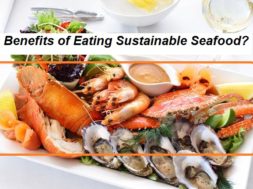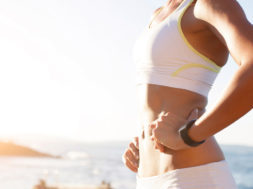Hey all. Today I am going to cover the little appreciated portion of health and wellness: Nutrition. Most people jump on the newest workout from muscle mags and Chuck Norris infomercials like kids on candy, but rarely do people pay proper attention to nutrition. Now, there is a gigantic difference between fad diets and nutrition, so do not mistake this for something that will make you lose ten pounds in a week. I deal in health, no hyped up starvation diets.
Without further introduction, lets get Luke Fisher’s Top Fitness Tips started!
1) Drink Water. This relatively simply commandment has untold health benefits from people of all ages. Studies show that nearly 75% of Americans are chronically dehydrated, and that is a scary thought. Human beings can only go three days without water before they die. Chronic dehydration means that people are within a day to two days away from dying. If that is not scary, I don’t know what is. But, there is hope! It is called the faucet! Average people should drink around 8 glasses of water a day, more if it is hot or they are exerting themselves more than usual. Being well hydrated has numerous health benefits, and more studies have shown that chronic issues such as back pain, joint pain, muscular inflammation, fatigue, grogginess, hunger pangs, and many many more can all be solved by being properly hydrated. Therefore, drinking water is the single most important step to health that you can do for yourself.
There are other benefits as well to drinking more water. When weight lifting, the increased water content improves muscle repair and recovery. Think of it as opening another lane in a highway. The nutrients enter your muscles faster, thus repairing them faster. When doing an endurance activity like hiking, biking, running, etc, the increased water not only transports energy faster, but prevents fatigue due to water loss. Water also serves to curb hunger pangs. If you get hungry and it is not time to eat yet, drink a glass of water and wait five minutes.
2) Eat six small meals a day. The reasons for this are also numerous, but I will go over the main two: Metabolism and muscle building.
Metabolism is what burns calories in your body when you are not exercising. Basically, all the things your body needs to do takes energy, and calories from food provide that energy. The efficiency that your body burns those calories for energy is your metabolism. Now, the word efficiency is deceptive when dealing with metabolism, because “efficient” for your body is burning as few calories as possible for the maximum amount of energy. This goes back to our survivalist days and the needed to get everything we could out of what we ate, but nowadays we do not have the risks that old cavemen had. However, our bodies have not adapted, and so we are still stuck in survival mode, which makes many people overweight. By eating six small meals a day, it tricks the body into thinking that there is a plethora of food available (which, wow, there is! Ever seen a Safeway?) The body then leaves crisis mode and stops trying to hoard all the caloric energy we get. This results in more calories burned doing mundane things, and more calories burned while exercising. Simply changing your meals from three to six, and not changing the amount of food you eat, can set you on the path to weight loss. Cool, huh?
The second helpful thing is muscle building. While the body’s metabolism is revved up by the six meals, so is the body’s capacities. Building muscle takes calories, and a lot of them, but it needs them for the entire repair process. Therefore, increasing your caloric intake slightly while eating six meals a day can give your muscles the fuel they needs to properly repair. This is especially true with weight training because the repair needed by the muscles is tremendous when moving heavy weights.
3) Do not count calories. Simple, right? But how many people do it? Counting calories takes away from the main task of nutrition: fueling your body. Too many get caught up in the idea that calories in food is all that matters. But let us take a closer look at that idea. Analyze the differences between an apple and a bag of fruit snacks. They both have a similar amount of calories. But which one is healthier? If you said the fruit snacks, get out of my office. The apple is healthier because of the nutrients it gives the body, regardless of the amount of calories there are. Besides, there are these sneaky little buggers called “empty calories” that will completely ruin your day if you are not careful. Imagine the fruit snacks again. What do they do for your body? Do they have any vitamins? Minerals? Fats? Protein? Carbs…aha! So they have carbs…but wait, what kind? Sugar? Yes, sugar, and processed sugar at that. “Empty calories” are calories that hold no nutritional value for your body, like those in soda, candy, and other heavily processed foods. So, why count calories if they do not count?
4) If it comes in a box, do not eat it. Seems like everything these days gives you cancer. Eating meat does. Not eating meat does. The air does. Smoke does. Just being near a smoker does. (pretty soon, just thinking about a smoker will give you brain cancer. Mark my words.) So how do we avoid this cancerous world of ours? Well, you can not, but you can slow the process for sure. The first step is, ironically, backwards. Get closer to nature, but not in the naked hippy in a tree kind of way. Just do not eat processed food. I talked about “empty calories” in #3, but it’s more than that. The process of processing contains so many industrial chemicals that it is almost criminal. In fact, the government made a law that stated how much of the stuff companies can legally have in their food. There is pus, blood, and other bits in milk, preservatives in bread, and do not even get me started on chicken nuggets. Quick quiz: If you can locate the “nugget” on a live chicken, I will give you $100 dollars cash.
The safest way to eat is local. Some of you might have to trust me on this, but outside the city there are these nifty places called farms. They grow stuff. Long story. Point is, these farms take their produce to Farmer’s markets, and people buy straight from the ground. It is much better than buying a pepper that was shipped from Mexico and coated in preservatives and pesticides. Take that, cancer!
5) Protein is good. Forget what you have heard about the dangers of protein. Everything is bad when taken too much, and protein is no different. Truth is, the body needs protein for important things, like building muscles and breaking down other minerals/vitamins (along with fat – more on that later). However, the average person needs anywhere from.75 grams to 1.5 grams of protein per lb of bodyweight, scaling according to their activity level. If you lift weights, eat more protein. If you are an athlete, eat more protein. But if you’re an average Joe or Jane that spends some time jogging, cycling, or doing light stuff in the gym, then you do not need 1.5 grams per lb. It is all about balance.
6) Carbs are good. Uh-oh. Every time you say that, a personal trainer at L.A. Fitness dies. Hmmm…carbsaregoodcarbsaregoodcarbsaregood. Seriously, though, carbs are the not the enemy. Processed, sugary, “empty calorie” carbs are. Good carbs, like Whole Grain bread, granola, flaxseeds, fruit, etc, are fine. They provide the body with the energy it likes to use first. The energy pyramid the metabolism uses looks like this: Carbs, Protein, Fat. Without boring you, the reason is due to ease of break down. It is easier to break down carbs into energy than protein, and protein moreso than fat. Now, this changes when the body has to use the protein to repair muscle tissue, so if you lift a lot, it looks like this: Carbs, Fat, Protein. Always Carbs first.
7) Fat is good. Not to be confused with being fat. I am talking about the meta-nutrient. Fat is REQUIRED by the body to break down minerals, vitamins, and expedite the delivery of other important things like amino acids. If your body doesn’t have fat, it doesn’t function, period. Have you heard the buzz around Omega-3 Fish Oil? Well, that’s fat. A fat that makes your heart healthier and prevents bone decay. Wait, what?
8) Knowledge is power. Do not take everything I say to heart without properly researching it first. When it comes to nutrition, knowledge and a cynical eye are your best friends. As omnivores, we evolved to inspect our food and surroundings. Look up popular eating habits. Try to pronounce the last three ingredients in a can of soda. Ask a farmer if he uses pesticides or herbicides. Ask the grocery store manager where the food comes from (hint: if he doesn’t know, that’s bad). One question I always like to ask myself is, “Can I see this in the wild?” If the answer is no, then I ask, “Could I make it in the wild?” If I can’t answer either of these questions, I do not eat it. Our bodies are still stuck in the stone age, and until we can transform Calcium Disodium EDTA or Phenylalanine into something useful, we should eat stuff from the stone age. After all, when have you ever seen a fat caveman?
Nutrition is more about a lifestyle than a fad. That is why I did not say the word “diet” in here at all. Eat healthy, live healthy. No fads about it.





